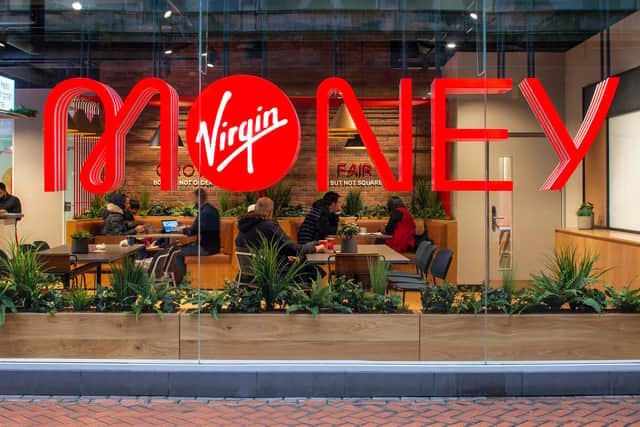Reaction: Glasgow-based Virgin Money agrees £2.9bn takeover bid by Nationwide Building Society
High-street lender Virgin Money has agreed a bumper £2.9 billion proposed takeover by Nationwide Building Society, which is led by Scottish boss Debbie Crosbie, in a move set to create the UK's second-largest mortgage and savings group.
Nationwide clarified that it values Virgin Money's major ongoing presence in Glasgow as well as Newcastle, and said it does not intend to make any material changes to the size of the latter’s 7,300-strong workforce "in the near term".
Advertisement
Hide AdAdvertisement
Hide AdThe building society has proposed a 220p-a-share approach for Virgin Money, including a planned 2p-per-share dividend payout, which it said is a 38 per cent increase on Virgin Money's closing share price on March 6. Virgin Money was formerly the Clydesdale and Yorkshire bank group CYBG and rebranded after a £1.6bn takeover of Sir Richard Branson's banking group in 2018.


Nationwide and Virgin Money said they had reached a preliminary agreement on the deal, with the former now looking through the latter's books before making a firm offer. Nationwide stressed that it would remain a mutual building society if the transaction, which would create a combined lender worth around £366.3bn with total lending and advances of about £283.5bn, gets relevant green lights.
It added that it would keep a branch in each location where the combined group is present until at least the start of 2026, and will rebrand the Virgin Money business as Nationwide within six years, though it will keep the two brands initially. The deal also follows Barclays agreeing to buy the core retail banking business of Edinburgh-based Tesco Bank.
Nationwide chief executive and former Clydesdale Bank executive Debbie Crosbie said a combined group “would bring the benefits of fairer banking and mutual ownership to more people in the UK, including our continuing commitment to retain existing branches”. She added: "We believe the combination would create a stronger and more diverse business that will be better placed to deliver value to our members and customers, both now and in the future."
Virgin Money chief executive David Duffy said: "This potential transaction with Nationwide represents an exciting opportunity to build on the significant progress we have made in becoming the only new Tier 1 bank in recent history. The combined scale and strength would expand our customer offering and complete our journey in the banking sector as a national competitor."
Analyst Joseph Dickerson at Jefferies said: "The deal looks to make a lot of strategic sense for Nationwide in terms of extension into cards and business current accounts and scale in core lending and deposits."
Shore Capital analyst Gary Greenwood said: “We had speculated for a while that [Virgin Money] was a potential bid target given its persistently low valuation, but wondered whether a trade purchase would be difficult given potential fair value adjustments and the poison pill associated with the Virgin brand agreement. In addition, there is significant integration risk for a trade buyer such as Nationwide.
“In our opinion, long-suffering shareholders are likely to welcome this offer, especially given its cash nature, but we feel it undervalues the group and that management could have perhaps driven a harder bargain.” He also said the deal underlines how “smaller banks on low valuation multiples are vulnerable to such approaches”.
Comments
Want to join the conversation? Please or to comment on this article.